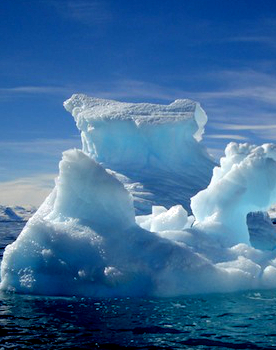Big concern for slowing ocean
 Scientists are sounding the alarm on the slowdown of deep ocean currents.
Scientists are sounding the alarm on the slowdown of deep ocean currents.
Melting ice in Antarctica is likely to cause a rapid slowdown of a major global deep ocean current by 2050, according to new research from Australian scientists.
The team found that the current in the deepest parts of the ocean could slow down by 40 per cent in just three decades if greenhouse gas emissions continue at current levels.
This could lead to a series of impacts including sea level rise, altered weather patterns and the potential long-term extinction of a vital water mass.
The research, published in the journal Nature, examined the deep ocean current below 4,000 metres which originates in the cold, fresh and dense waters that plunge down off Antarctica’s continental shelf and spread to ocean basins around the globe.
The scientists warn that the current is heading for collapse, stating that it is “way faster than we thought these circulations could slow down.”
The study looked at what would happen in the deep ocean around Antarctica if the fresher water melting from ice sheets was added to climate modelling.
The modelling for the research assumed that global greenhouse gas emissions remained on their current path, but lower emissions could lessen the amount of ice melting which could slow the decline.
The slowdown in the deep ocean current relates to the amount of water that sinks to the bottom and then flows north.
The authors of the study warn that the slowdown would “profoundly alter the ocean overturning of heat, fresh water, oxygen, carbon and nutrients, with impacts felt throughout the global ocean for centuries to come”.
Dr Steve Rintoul, an oceanographer and expert on the Southern Ocean at the Australian government’s Commonwealth Scientific and Industrial Research Organisation, said that as the deep ocean circulation slows, fewer nutrients would be returned to upper layers of the ocean affecting the production of phytoplankton.
“The longer we go on with higher rates of greenhouse gas emissions, the more changes we commit ourselves to,” he said.
The study also suggests that another major ocean circulation in shallower waters that spans the entire Atlantic Ocean is also slowing down.
The researchers found that the modelling was in line with recent observations of changes to the deep ocean circulation, which suggest a slowdown may already be taking place.
<br><iframe title="vimeo-player" src="https://player.vimeo.com/video/810755521?h=d67e397173" width="640" height="360" frameborder="0" allowfullscreen></iframe>








 Print
Print